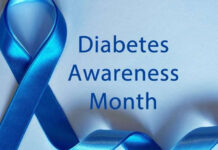
Chronic kidney disease (CKD) often develops as a result of other health conditions that gradually damage the kidneys. Here are five of the most dangerous forms of CKD, their causes, and how to detect and prevent them early.

1. Diabetic Nephropathy
Cause: High blood sugar from diabetes damages the kidney’s filtering units.
Early Detection: Regular screening for kidney function in diabetics, checking for protein in urine (microalbuminuria).
Prevention: Manage blood sugar levels, blood pressure, and maintain a healthy weight.

2. Hypertensive Nephrosclerosis
Cause: Long-term high blood pressure hardens and narrows kidney blood vessels.
Early Detection: Monitor blood pressure and kidney function tests in hypertensive patients.
Prevention: Control blood pressure through diet, exercise, and medication.

3. Polycystic Kidney Disease (PKD)
Cause: Genetic condition where cysts develop in the kidneys.
Early Detection: Family history screening and regular imaging tests (ultrasound or MRI).
Prevention: Early diagnosis and management to slow cyst growth with blood pressure control.

4. Glomerulonephritis
Cause: Inflammation of the kidney’s filtering units, often from infections or autoimmune diseases.
Early Detection: Urine tests for blood and protein, especially after infections.
Prevention: Prompt treatment of infections and regular check-ups for those with autoimmune diseases.

5. Lupus Nephritis
Cause: Kidney inflammation caused by systemic lupus erythematosus (SLE).
Early Detection: Regular urine tests and kidney function monitoring in lupus patients.
Prevention: Manage lupus with medication to prevent kidney damage.
Conclusion
Early detection through regular screening, especially if you have risk factors like diabetes, high blood pressure, or a family history of kidney disease, is crucial. Maintaining a healthy lifestyle and managing related conditions can significantly reduce the risk of CKD. If you suspect any kidney issues, consult your doctor promptly for appropriate tests.











